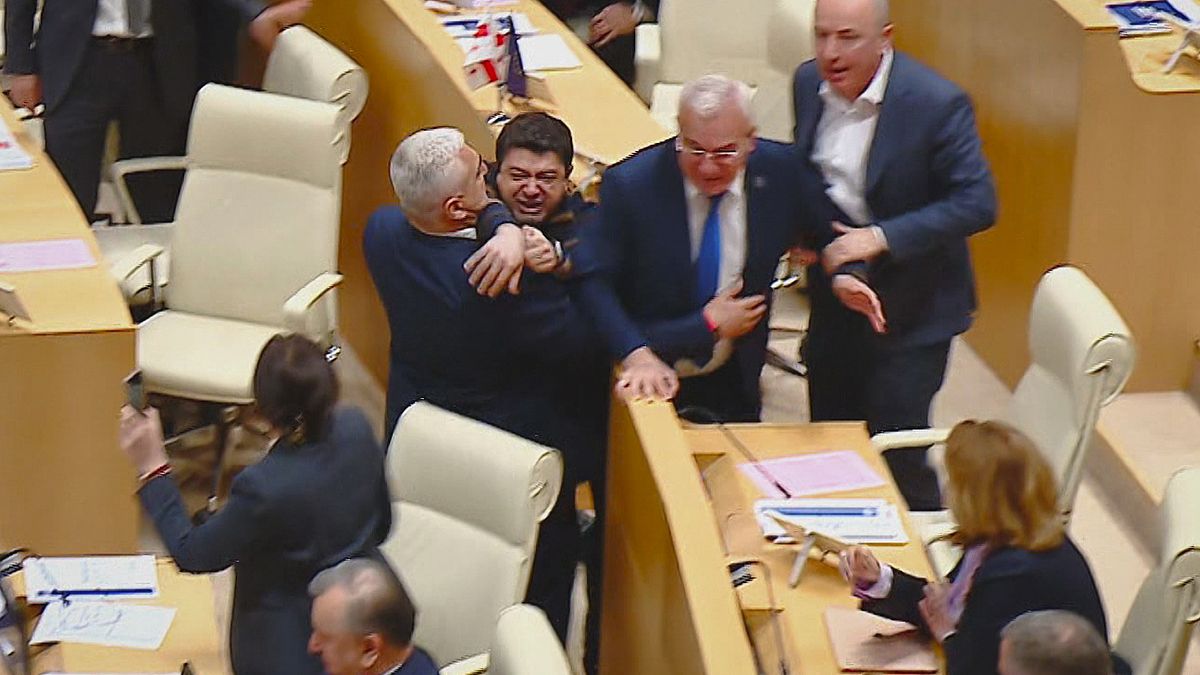The bill was introduced by the ruling Georgian Dream party, which argued that it is necessary to prevent foreign influence in the country’s domestic affairs. However, opposition lawmakers and civil society activists believe that the bill is a veiled attempt to restrict freedom of expression and suppress dissenting voices. Prominent human rights groups have also condemned the bill, warning that it could have a chilling effect on independent media and civil society in Georgia.
As tensions escalated in the parliament, scuffles broke out between lawmakers from the ruling party and the opposition. Some opposition lawmakers even went as far as to rip up copies of the bill in a symbolic gesture of defiance. The chaotic scenes in the parliament mirror the deep divisions within Georgian society over the country’s relationship with Russia and the broader issue of democratic governance.
Critics of the bill argue that it is part of a wider crackdown on civil liberties in Georgia, which has been on the rise in recent years. They point to the government’s targeting of opposition figures, independent media outlets, and civil society activists as evidence of a trend towards authoritarianism. The ‘Russia’ bill, they argue, is just the latest in a series of measures aimed at silencing dissent and consolidating power in the hands of the ruling party.
Despite the backlash from critics, the Georgian Dream party remains defiant, vowing to push ahead with the bill despite the protests. The party holds a majority in parliament, which means that the bill is likely to pass despite opposition from civil society and the international community. The European Union and the United States have both expressed concerns about the bill, urging the Georgian government to uphold democratic principles and respect freedom of speech.
The ‘Russia’ bill has also raised fears about the future of Georgia’s relationship with Russia, which has been strained since the 2008 war between the two countries. The bill, critics argue, could give Moscow a pretext to intervene in Georgia’s domestic affairs under the guise of protecting its own interests. This has added an extra layer of complexity to an already complicated geopolitical situation in the Caucasus region, where tensions between Russia and its neighbors have been simmering for years.
In the midst of these tensions and uncertainties, many Georgians are left wondering about the future of their country and its democratic aspirations. The ‘Russia’ bill has exposed deep-seated divisions within Georgian society and raised questions about the government’s commitment to democratic values. As the debate rages on in the parliament, the outcome remains uncertain, but one thing is clear: the future of Georgia’s democracy hangs in the balance, and the stakes could not be higher.











